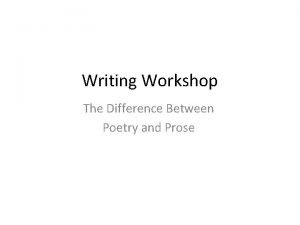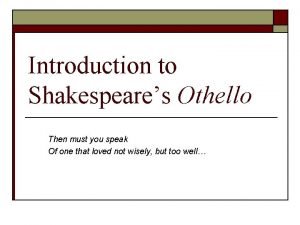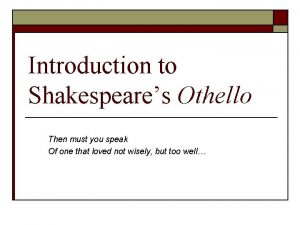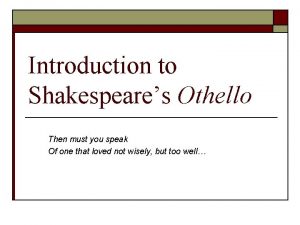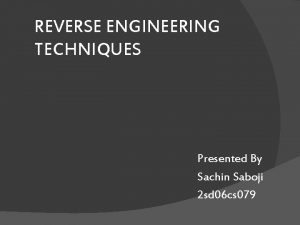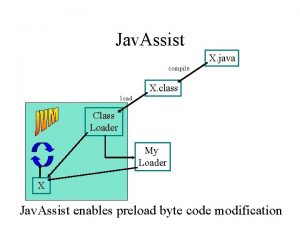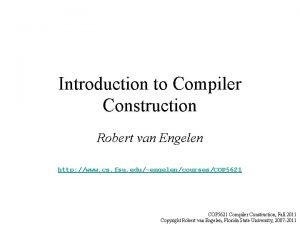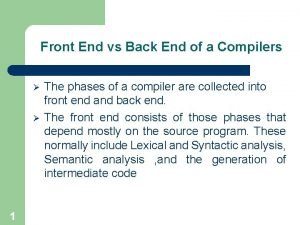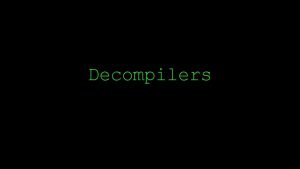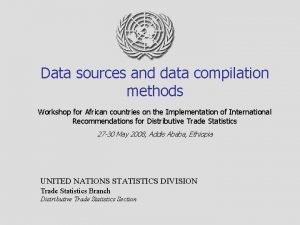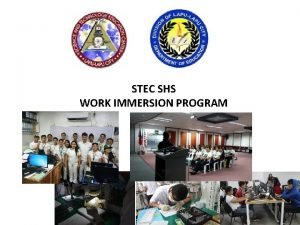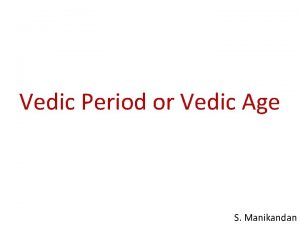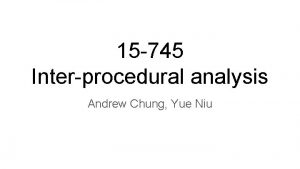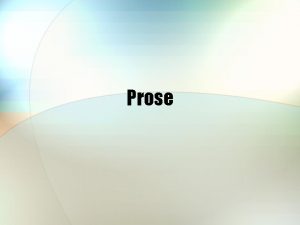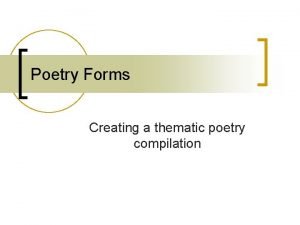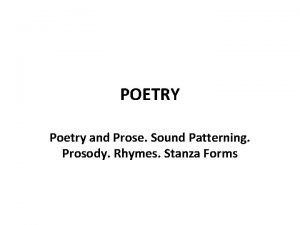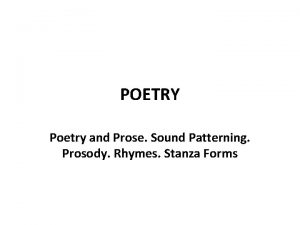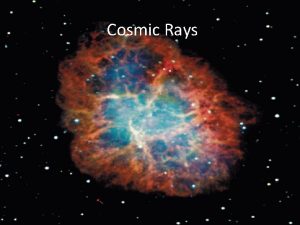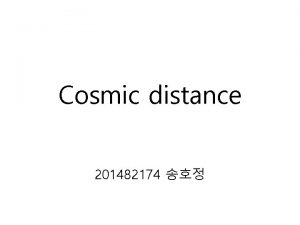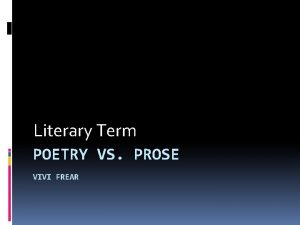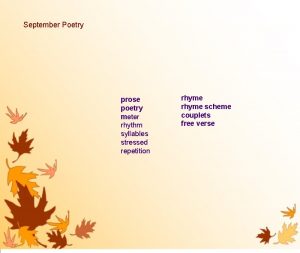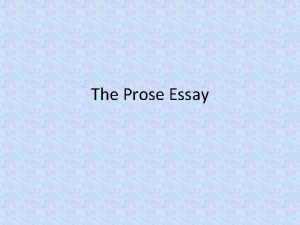Cosmic Quotations Poetry and Prose A compilation of

































- Slides: 33

Cosmic Quotations, Poetry, and Prose: A compilation of reflections on our Universe. Edited by Julie Ware, Physics 133 Extra Credit Project

Introduction: Einstein, the same man who discovered the Law of Relativity, also said that “imagination is more important than knowledge. ” This is true because to desire an understanding of the heavens, your imagination must first be probed by curiosity. In order to even begin understanding the laws of the Universe, it requires imagination to understand just how grand of a scale we are talking about. I want to incorporate both science and reflections of the imagination by summarizing certain astronomical topics, while including quotes or prose from famous physicists and authors

“Cosmos Dancing”, by Jo Ann Durham

Astronomy Quotes Pure mathematics is, in its way, the poetry of logical ideas. (Albert Einstein) l The cosmos is all there is, all there ever was, and all there ever will be. (Carl Sagan) l “We especially need imagination in science. It is not all mathematics, nor all logic, but is somewhat beauty and poetry. ” (Maria Mitchell, 1818 -1889, astronomer ) l

The History of Astronomy http: //www. soulsofdistortion. nl/images/Stonehenge. jpg

Archeostronomy l l l The history of astronomy is immense because it’s in human nature to be curious. As far back as 2, 500 years ago, Muslim people predicted eclipses using saros cycles. Also, the heavens were used to keep track of seasons for agriculture, using sundials to observe the passing of time. Ancient structures were used in search of astronomical connections. For example, the Stonehenge was built as early as approx. 2, 500 BC to mark the seasons. Before the Copernican revolution, people believed that the world was the center of the universe. This one misconception led people to entertain complex and ultimately untrue laws of nature, for example, that the planets traveled around earth in complex retrograde cycles. In 1542, Copernicus published “Concerning the Revolutions of the Heavenly Spears, ” which replaced prior geometric layouts and put was Heliocentric. Though Copernicus’ ideas were not all right, he did however spark a necessary scientific revolution, leading to Kepler, Galileo, as well as many others to begin the development of modern day scientific principles. Kepler’s laws of planetary motion states that every planet orbits around the sun at an ellipse, as well as another invisible point, a planet sweeps out equal areas in equal times in orbit, and more distant planets orbit the sun at slower speeds. Galileo used the telescope to show that the heavens were not perfect, leading us to seek natural explanations for phenomena.

History of Astronomy Quotes l They came to a round hole in the sky, burning like fire. "This, " said the Raven, "is a star. " Inuit creation story l Even sticks and stones have a spiritual essence, a manifestation of the mysterious power that fills the Universe. Sioux Indian l It is indeed immensely picturesque. I can fancy sitting all a summer's day watching its shadows shorten and lengthen again, and drawing a delicious contrast between the world's duration and the feeble span of individual experience. There is something in Stonehenge almost reassuring; and if you are disposed to feel that life is rather a superficial matter, and that we soon get to the bottom of things, the immemorial gray pillars may serve to remind you of the enormous background of time. Henry James 1875 CE

Pre-Copernican Revolution in Western Civilizations l There are forces in nature called Love and Hate. The force of Love causes elements to be attracted to each other and to be built up into some particular form or person, and the force of Hate causes the decomposition of things. Empedocles 430 BCE l The forces of rotation caused red hot masses of stones to be torn away from the Earth and to be thrown into the ether, and this is the origin of the stars. Anaxagoras 428 BCE l The Sun is a mass of fiery stone, a little larger than Greece. Anaxagoras 434 BCE

Post Copernican Revolution: l The Universe is populated by innumerable suns, innumerable earths, and perhaps, innumerable forms of life. That thought expresses the essence of the Copernican revolution. No revelation more striking has ever come from the scientific mind. Robert Jastrow 1989 CE l You realize the sun don'-go down It's just an illusion caused by the world spinning round The Flaming Lips, “Do You Realize? ”

Key Astronomical Principles:

Making Sense of It All l The universal law of gravitation states that every mass attracts other mass by gravity and is directly proportional. The strength of gravity between objects decreases with the square of their distance between centers. (Inverse square law) Our gravity on earth is 9. 8 m/s squared. Motion: Newton’s version of Kepler’s 3 rd law allows us to measure orbital periods by distance, mass, and orbital periods. Also, Velocity is equaled to distance divided by time. Conservation of angular momentum explains that orbits and rotations cannot change course unless torque acts upon the paths. Conservation of momentum states that nothing can change unless acted upon by another force. Conservation of energy applies the same principle, that energy cannot just disappear or appear, but changes only by exchanges of energy.

Orbital Velocity: “But on your tiny planet, my little prince, all you need to do is move your chair a few steps. You can see the day end and the twilight falling whenever you like… “One day, ” you said to me, “I saw the sunset forty-four times!” And a little later you added: “You know--one loves the sunset, when one is so sad…” “Were you so sad, then? ” I asked, “on the day of the fortyfour sunsets? ” But the little prince made no reply. Antoine De Saint-Exupery The Little Prince Laws of Motion Watch the stars and from them learn. To the Master's honor all must turn, Each in its track, without a sound, Forever tracing Newton's ground. Albert Einstein

Universal Concepts Observations always involve theory. Edwin Hubble Gravity is only the bark of wisdom's tree, but it is what preserves it. Confucius 500 BCE Time: For us physicists, the distinction between past, present, and future is only an illusion. Albert Einstein A day is a miniature eternity. Ralph Waldo Emerson To see a world in a grain of sand, and a heaven in a wild flower, hold infinity in the palm of your hand, and eternity in an hour. William Blake 1800 CE Time begins from some place Measured by the age of light. It began from the furthest thing We see flicker in the night. Art Mason

Our Solar System http: //www. swosu. edu/physics/images/astronomy/planets. montage. jpl. jpg

The Sun and It’s Planets - - - The earth rotates, thus making it appear that stars rise and set, (including our sun. ) The tilt of the earth as it revolves around the sun causes seasons, or different hemispheres to feel light more or less directly. Planets that are closer to the sun are Terrestial, or, earthlike and rocky. Planets that are farther from the sun are Jovian, or jupiterlike and gaseous. The origin of the solar system is thought to be by the Nebular Theory, a giant gaseous explosion. Condensation and Accretion help support the nebular theory. We are able to know the composition of the sun by observing absorption lines, which serve as fingerprints formed in the photosphere. The Sun is composed of many layers, including the core, radiation zone, convention zone, photosphere, chromosphone, and the corona. It’s energy source can be found through E=MC^2

The Sun l The Sun, with all the planets revolving around it, and depending on it, can still ripen a bunch of grapes as though it had nothing else in the Universe to do. l Galileo Galilei l “I say Live, Live because of the Sun, The Dream, the excitable gift. ” Anne Sexton, 1928 -1974, P 495

Earth “The Evolution of the world may be compared to a display of fireworks that has just ended: some few red wisps, ashes, and smoke. Standing on a cooled cinder, we see the slow fading of suns, and we try to recall the vanished brilliance of the origin of the worlds. ” (G. Lemaitre, 18641966). P 235 See the world as it truly is, small and blue, beautiful in that eternal silence where it floats. Archibald Macleish www. weathernewengland. com

The Moon Is the moon tired? she looks so pale Within her misty veil: She scales the sky from east to west, And takes no rest. Before the coming of the night The moon shows papery white; Before the dawning of the day She fades away. - Christina Rossetti l www. stariel. com/? page_id=140

Stellar Lifestyles http: //www. nasaimages. org/luna/servlet/detail/nasa. NAS~12~12~64139~168522: Story-of. Stellar-Birth

l l l Stars Constellations are familiar patterns that help us to identify regions of the sky with well defined borders. The International Astronomical union has divided the sky in 88 constellations. We use the Hertzsprung-Russell Diagram to determine properties’ of stars, which shows that Luminosity is relative to the Temperature ^4 by the Radius ^2 (The Stefan Boltzmann Law) The life of a star is based on it’s mass because its mass determines its how much energy it gives off. Temperature is classified by OBAFGKM. The 5 classes of Luminosity include l l l I Supergiants II Bright Giants III Giants IVSubgiants V Main sequence stars - The life of a star is a constant battle between gravity and pressure. -Highmass stars die by becoming a supernova, then either a black whole or neutron star. -Low mass stars die by becoming a planetary nubula, then a white dward.

Stars: Composition l It is remarkable that the elements diffused through the host of stars are some of those most closely connected with the living organisms of our globe. W. Huggins, 1865 CE l God is mostly hydrogen. Bradley Snowder 1988 CE l“we are, therefore, made out of star stuff… we feed upon sunbeams, we are kept warm by the radiation of the Sun, and we are made out of the same materials that constitute the stars. ” Harlow Shapley, The Universe of Stars

http: //www. star. ac. za/graphics/n 11 lmc_noao. jpg

Star Clusters l There are too many stars in some places and not enough in others. Mark Twain l It is nothing else but a mass of innumerable stars planted together in clusters. Galileo Galilei 1611 CE (the Milky Way) l Many a night I saw the Pleiads, Rising thro' the mellow shade, Glitter like a swarm of fire-flies, Tangled in a silver braid. Tennyson l May it not be that the brighter stars are like our Sun, the upholding and energizing centers of systems of living beings? William Huggins 1865 CE

Constellations Why did not somebody teach me the constellations, and make me at home in the starry heavens, which are always overhead, and which I don't half know to this day? Thomas Carlyle 1880 CE O had I power like inclination, I'd hoist thee up a constellation! To canter with the Sagittare, Or leap the Ecliptic like a bear, Or turn the Pole like any arrow; Or when old Phoebus bids good-morrow Down the Zodiac urge the race, And cast dirt on his godship's face: For I could lay my bread and kale He'd ne'er cast salt upon thy tail! Robert Burns 1788 CE The wind-shak'd surge, with high and monstrous main, Seems to cast water on the burning Bear, And quench the guards of the ever-fixed pole. Shakespeare, (Othello) http: //nightglories. com/images/Big%20 Dipper. jpg

The Stellar Graveyard l When I had satisfied myself that no star of that kind had ever shone before, I was led into such perplexity by the unbelievability of the thing that I began to doubt the faith of my own eyes. Tycho Brahe (supernova 1572)

Our Galaxy- The Milky Way http: //schoolnet. gov. mt/earth_universe/images/milkyway. jpg

Galaxies - l l l In the early 1600 s Galileo used the telescope to show that the milky way is composed of individual stars. We are a spiral galaxy with many spiral arms that revolve around a bulge on a relatively flat disk, surrounded by a dimmer halo. The Halo contains about 200 globular clusters of stars. Our galaxy is abour 100, 000 light years in diameter. We can use stellar orbits to measure galactic mass through Kepler’s third law. We’re recycled throughout our galaxy through the star-gas-star cycle. The other types of galaxies are elliptical and irregular. Elliptical galaxies are most often found in clusters , containing 100 s to thousands of other galaxies. Andromeda is the closest galaxy to the Milky Way at about 2. 5 million light years away. Local groups consist of about 40 galaxies, with 3 million light years across.

Galaxy Quotes The infinitude of creation is great enough to make a world, or a Milky Way of worlds, look in comparison with it what a flower or an insect does in comparison with the Earth. Immanuel Kant Torrent of light and river of air, Along whose bed the glimmering stars are seen, Like gold and silver sands in some ravine Where mountain streams have left their channels bare! H. W. Longfellow 1880 CE (the Milky Way) Who are we? We find that we live on an insignificant planet of a humdrum star lost in a galaxy tucked away in some forgotten corner of a universe in which there are far more galaxies than people. Carl Sagan l. That is the spiral galaxy in Andromeda. It is as large as our Milky Way. It is one of a hundred million galaxies. It consists of one hundred billion suns. Now I think we are small enough. Franklin D. Roosevelt

The Universe - Our observable universe is about 14 Billion years old. We know this because we are able to see 14 Billion light years in all directions around us. -The Universe is expanding and can be measured by Hubble’s Law, where H tells us the rate of expansion that galaxies are moving apart. 1/H tells us how long the universe has been expanding (age. ) --Our observable universe is growing 1 light year every year. -- An object’s distance is easier to be expressed in look back time. -Lookback time is directly proportional to cosmological redshift, and thus we can record how the expansion of the universe expands photons, shifting them to redder wavelengths.

Universe Quotes l "What did you see? " I asked, "Before beginning's Big Bang lights? " (I reviews and interviews, I edits and I writes). "Before the start of time, before the Universe's birth? What did the Hubble show, ten billion years before the Earth? " He told me. Now I writes no more. I drinks a bit, I edits. "Right before the beginning, " he said, "is when they roll the credits!" Jonathan Vos Post l Images of broken light which dance before me like a million eyes that call me on and on across the Universe. Limitless undying love which shines around me like a million suns, it calls me on and on across the Universe. The Beatles 1968 CE The universal spectacle throughout Was shaped for admiration and delight, Grand in itself alone, but in that breach Through which the homeless voice of waters rose, That dark deep thoroughfare, had Nature lodged The Soul, the Imagination of the whole. (Wordsworth)

Our eyes prefer to suppose That a habitable place Has a geocentric view, That architects enclose A quiet Euclidian space: Exploded myths - but who Could feel at home astraddle An ever expanding saddle? – W. H. Auden l

Starry Night Vincent Van Gogh

l Artwork: l l Bennett, Jeffrey. Cosmic Perspective. 5 th Edition. San Francisco: Pearson Educ. Inc. , 2008. Saint-Exupery, Antoine de. The Little Prince. San Diego New York London: Harcourt, Inc. , 2000. Poetry: l l Durham Collection. " Welcome to Tarleton State University - Tarleton State University. 10 May 2009 <http: //www. tarleton. edu/~langdoncenter/Durham. Collection/pages/Cosmos%20 Dancing. html>. Van Gogh, Vincent. Starry Night, oil on canvas by Vincent van Gogh, 1888; in the Musée d’Orsay, Paris. Books: l l Works Cited Auden, WH. Poetry, “After Reading a Child's Guide to Modern Physics, ” The New Yorker, November 17, 1962, p. 48 Rossetti, Christina, Poetry, “Sing Song, ” Ed. Arthur Hughes. London: MACMILLAN AND CO. , 1893. Wordsworth, William. “Climbing Snowdon” (Book XIII, ls 1 -119. ) The Prelude. Ed. Harold Bloom. New York: Chelsea House Publishers, 1986. Quotations: l l Western Washington University Planetarium Collection. Ed. Brad Snowder. 2006. Western Washington University. 10 May 2009 <http: //www. wwu. edu/depts/skywise/cosmo. html> On Truth & Reality. The Spherical Standing Wave Structure of Matter in Space. Ed. Geoff Haselhurst. 1997 -2009. WSM. 9 May 2009 <http: //www. spaceandmotion. com/mathematical-physics/famous-mathematicsquotes. htm>
 Prose and poetry uil
Prose and poetry uil Poet nn
Poet nn Elizabethan poetry quiz
Elizabethan poetry quiz Elizabethan poetry and prose
Elizabethan poetry and prose Unseen poetry example
Unseen poetry example Characteristics of hebrew poetry
Characteristics of hebrew poetry Elizabethan poetry and prose
Elizabethan poetry and prose Unseen prose and poetry
Unseen prose and poetry Specs and slims poem analysis example
Specs and slims poem analysis example Unseen poetry introduction
Unseen poetry introduction Prose vs poetry
Prose vs poetry Poetry v prose
Poetry v prose What makes poetry different than prose?
What makes poetry different than prose? Blank verse othello
Blank verse othello Prose or verse
Prose or verse Then must you speak
Then must you speak Phases of reverse engineering
Phases of reverse engineering Jav-x
Jav-x Phases of compilation
Phases of compilation Analysis synthesis model of compilation
Analysis synthesis model of compilation Front end back end compiler
Front end back end compiler Reverse compilation
Reverse compilation Contoh compilation
Contoh compilation What is data compilation
What is data compilation Hotinpl
Hotinpl Compilation of quran
Compilation of quran Work immersion checklist
Work immersion checklist During the later vedic period chamberlain was known as
During the later vedic period chamberlain was known as Bus crash compilation
Bus crash compilation Previous ipdb not found, fall back to full compilation.
Previous ipdb not found, fall back to full compilation. Enquiry quotation
Enquiry quotation Quote citation
Quote citation Direct vs indirect quotation
Direct vs indirect quotation Narrative vs lyric poem
Narrative vs lyric poem










